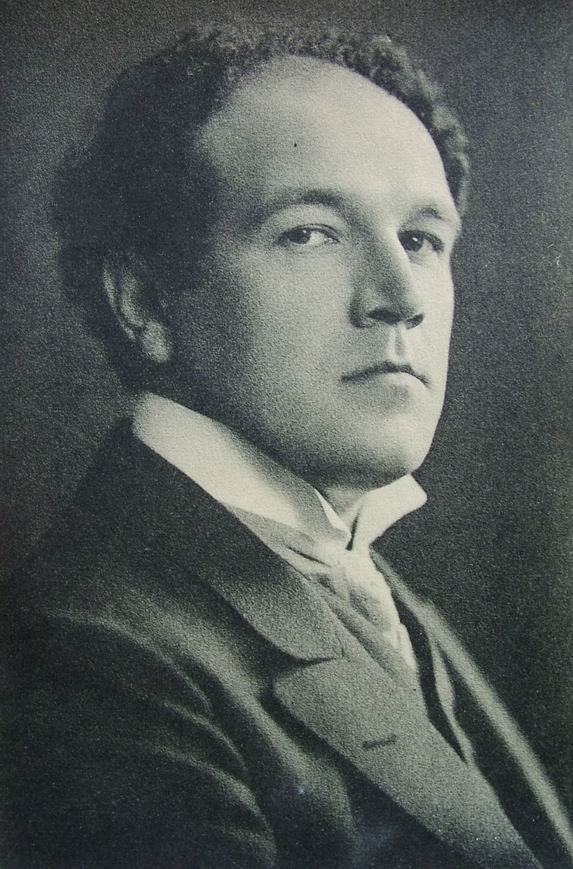This Sunday at 7:30 p.m., Eastman doctoral candidate Cahill Smith and colleagues present a recital in Weill Recital Hall at Carnegie Hall of music by Nicolas Medtner. It’s a program that spans the composer’s career, from Op. 1 to his posthumous Piano Quintet, and the first survey of Medtner’s compositions at Carnegie Hall since the composer’s own performance there in 1930. Here, Cahill introduces the composer. (You can also find Cahill discussing Mednter on our YouTube channel.)
 I was first introduced to Russian composer Nicolas Medtner (1880-1951) about six years ago by my former teacher, Van Cliburn laureate Yakov Kasman, and I was immediately captivated. I remember thinking to myself, “Who is this Medtner, and why is it that no one seems to know him?” I discovered later that I was not the only one asking these questions.
I was first introduced to Russian composer Nicolas Medtner (1880-1951) about six years ago by my former teacher, Van Cliburn laureate Yakov Kasman, and I was immediately captivated. I remember thinking to myself, “Who is this Medtner, and why is it that no one seems to know him?” I discovered later that I was not the only one asking these questions.
Vladimir Horowitz once famously asked in an interview, “Why nobody plays Medtner?” Certainly, he’s had his staunch defenders. Along with Sviatoslav Richter, Emil Gilels, and Sergei Rachmaninoff (who considered Medtner the greatest living composer of his time), Horowitz was one of a group of pianists who advocated for and performed Medtner’s music in the first half of the 20th century; today’s Medtnerites include such concert-hall luminaries as Marc-André Hamelin, Hamish Milne, Boris Berezovsky, and Martha Argerich.
But why have we never heard of Medtner? Perhaps the single biggest factor is the highly volatile period in which the composer worked. Medtner’s career was overshadowed by the radical experiments of modernism, which he publicly claimed (much to his detriment) were destroying the “immutable laws of art.” Composition was, to Medtner, a religious calling of the highest order, and like Bach, he often dedicated his pieces to God. He never sought to play to ever-changing public taste, and during his life he was often excluded from major conservatories and cultural centers based on the sole criticism that his music was old-fashioned. (It’s worth remembering that Bach and Brahms were at times similarly derided.)
While he would have certainly objected to this description–his style is completely unique–the quickest way to describe Medtner’s music is as a cross between Beethoven and Rachmaninoff. Medtner was a self-proclaimed follower of Beethoven and wrote music with a similar thematic unity, often using the smallest basic materials to create massive structures and dramatic contrasts: if themes were money, Medtner could feed a family of four with a few nickels and dimes. His music overflows with cyclic references, clever counterpoint, formal innovations, and thematic transformation. At the same time, Medtner imbued his works with exotic Russian harmonies that echo Rachmaninoff or Scriabin. Intense drama, lyricism, fantasy, and childlike innocence are all to be found in Medtner’s music.
Despite being labeled old fashioned, Medtner found his own way forward in the 20th century, and is responsible for a number of unique innovations in harmony, rhythm, and form which have been largely overlooked until now. His fourteen piano sonatas mark the single largest contribution to the genre since Beethoven, and in his other works, especially his songs, chamber music, and piano concertos, one finds Medtner developing the musical ideas of his 19th-century musical ancestors. Medtner’s music says something new in an old language, and does it with utmost sincerity and warmth.
In this respect, Medtner becomes valuable as a time capsule of sorts. Is not Medtner’s music equally representative of musical developments in the 20th century as Stravinsky and Schoenberg? For me, his work raises with astonishing poignancy the question of how we measure progress in music–and whether progress is always a good thing?
